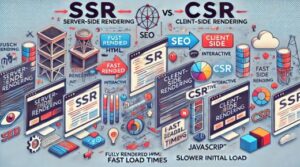
Start Your Own Small Business: A Comprehensive Guide
Introduction
Introduction: If you’re feeling overwhelmed by the task of starting your own small business, this guide is for you. This comprehensive guide covers everything from the nuts and bolts of starting a business to market your venture and getting started. Whether you’re an experienced business professional or just starting out, this guide has all the information you need to get started in just a few easy steps.
What is a Small Business.
A small business is a business that operates under the constraint of not having too much debt, too much overhead, or other significant limitations. In order to be a small business, there must be a minimal number of employees, a limited geographic area in which it can operate, and/or some other significant restriction on its ability to generate revenue.
What are the Different Types of Small Businesses
There are three main types of small businesses: independent contractors, sole proprietorships, and partnerships. Each type has its own unique set of regulations and requirements.
How to Start a Small Business
To start a small business, you’ll first need to identify your industries and services that would be served by your business (e.g., home health aides, pet-sitting). Once you have these identities nailed down, you can begin planning your business strategy and develop an idea for what kind of products or services you would offer. Finally, you’ll need to secure startup capital and get your business up and running!
What are the Different Types of Small Businesses.
An online business is a business that is conducted over the internet. This means that you can start your business from scratch, without any prior experience or knowledge. You can also start a company by starting a website and selling products or services.
Start a Franchise
A franchise is an agreement between two businesses that allows them to work together in order to create a larger company. This type of business is often more expensive than starting your own small business, but it can offer greater opportunities for growth and innovation. Subsection 2.3 Start a Company.
A company is the same as a company, but it’s run by individuals instead of a corporation. This type of business offers greater autonomy and control over its operations, which can be beneficial if you want to become your own boss and take on more creative risks. Subsection 2.4 Create a Service or Product.
You don’t need to have any special skills or qualifications to start your own small business – you can simply design and produce something that you care about and hope people will enjoy using or selling (or both). If you decide to create a service or product, make sure it meets the needs of your target market – someone who wants to do their own groceries, fixes their own car, etc.– and has potential commercial applications too (like being used as part of an online shopping cart). By taking on this kind of project yourself, you open up many opportunities for growth and expansion without needing outside help; this makes small businesses an ideal choice for anyone looking to establish their own empire!
How to Start a Small Business.
When you’re starting your own small business, there are a few things to keep in mind. First, it’s important to choose a business idea that will be both profitable and exciting. Second, research the different types of businesses that are available and find one that is perfect for your skills and interests. Finally, make sure to get started by creating an outline of your business and getting involved in online marketing.
Research the Businesses You Want to Start
Once you have your business idea selected, it’s time to research the businesses that are available in your area. This can be done through online databases like Google Maps or Yelp, or by contacting local businesses directly. Additionally, it can be helpful to attend local startup events and meet with potential customers. Subsection 3.3 Get started with Your Small Business.
Once you have a basic understanding of your business and its potential market, it’s time to get started on building your small business! There are many helpful resources available online (like The Lean Startup), as well as local accelerators and incubators that can help you get started quickly and cheaply.
Conclusion
Starting a small business is an important step in any entrepreneur’s journey. There are different types of small businesses, each with its own unique advantages and disadvantages. To get started, you’ll need to choose the right business idea and research the businesses you want to start. Once you have a solid plan and team in place, starting your small business is easy!





